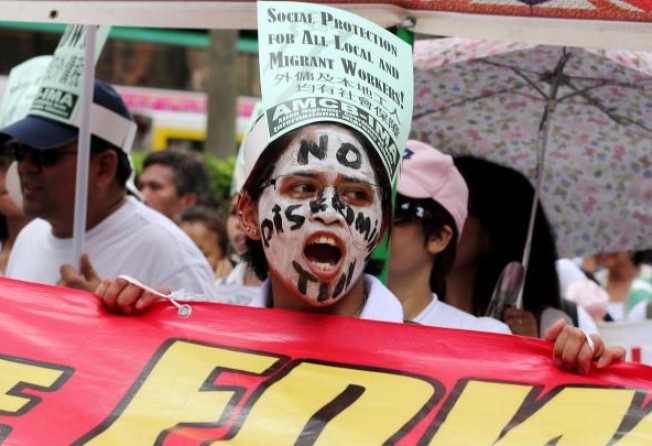How discrimination and stereotyping affect us all

Last year, autumn arrived late so we were delighted when it was finally cold enough in December to enjoy a hotpot supper at home. All of us, including our Indonesian domestic helper, love hotpot. Not just for the food itself, but because it is also a good time for family conversation.
At our first hotpot supper this year, we talked about what had happened that day. My daughter fell and hurt her leg after a stranger accidentally kicked her. She was not upset as the person had sincerely apologised. Although we felt bad that she had been hurt, we were thankful that the stranger was apologetic. Our helper commented that while many people in Hong Kong were friendly, some could be quite aggressive.
She recalled a quarrel she saw while taking the MTR. It was between an elderly resident and a woman from the mainland. The latter was already on the train and talking in Putonghua on her smartphone when the elderly lady boarded the crowded compartment. Disappointed that no one offered her a seat, the old lady went to the mainlander and asked for her seat. When the woman refused to move, the old lady started to accuse the woman of abusing Hong Kong public services and exploiting what should belong to its people. A heated quarrel ensued between them.
Although our helper did not take a side in this incident, she said that encountering discrimination is a common experience for foreign domestic helpers here. For example, although the public areas in our housing estate are supposed to be open to all residents, security guards often dismiss foreign domestic helpers from these areas. Furthermore, they are often accused of being noisy and disruptive. Yet residents who behave the same way are not treated in a similar manner.
Her comments aroused our concern about racial discrimination and integration in Hong Kong.
My son, who enjoys a close relationship with our helper, felt sorry about the discrimination she had experienced. My husband noted that it was not fair to point the finger only at Hong Kong people, noting how a major overseas retailer added tension between Hong Kong people and mainland visitors by discriminating against local customers in favour of mainland tourists, who spend more. Everyone may face differential treatment according to their race, wealth and social status.
My daughter contributed an alternative perspective by sharing the experience of her schoolmates. A group of them were returning on a bus one evening after a get-together, and were chatting, teasing and laughing among themselves. Realising that they might disturb other passengers, the schoolmates lowered their voices. But as they did so, a passenger who was a member of an ethnic minority suddenly turned around and told them to stop laughing at him, emphasising that he was not smelly at all. He seemed slightly intoxicated, which might have led him to misread their behaviour. However, his sensitivity to discrimination reflects that stereotyping is mostly a two-way process.
Stereotyping reinforces misunderstandings and overgeneralisations about each other, no matter whether they are discriminating against others or a victim of bias. It locks people in a vicious cycle of negative interaction.
Dr Lau Yuk-king is a consultant with the department of social work at the Chinese University